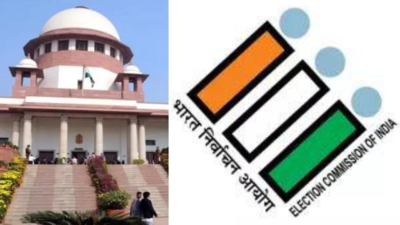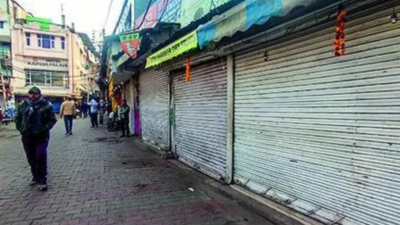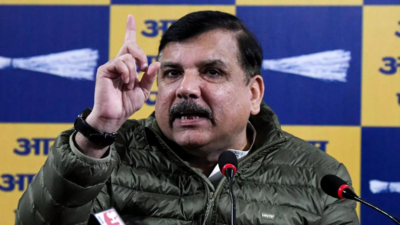
. NEW DELHI: With incidents of sexual harassment of women workers/members of political parties often hushed up, SC on Monday asked the Election Commission to examine whether registered political parties could be brought under the ambit of Sexual Harassment of Women at Workplace (Prevention, Prohibition and Redressal) Act, 2013. Appearing for advocate-petitioner Yogamaya G, senior advocate Shobha Gupta told a bench of Justices Surya Kant and Manmohan that though many women are active members of political parties, only CPM has set up an internal complaint committee with external members.
AAP lacks transparency about its committee, while BJP and Congress have admitted not having an adequate ICC structure mandated under law, the petitioner alleged, while demanding the law must apply in equal rigour to parties which owe allegiance to the Constitution that mandates protection of dignity of women. The bench said the petitioner's analogy to equate political parties as employers and workers/members as employees may not be apt, but agreed that this is an important issue that should be adjudicated by EC. SC told the petitioner that if she does not receive any satisfactory response from EC on the issue raised by her, she is free to approach court again.

The PIL quoted a 2014 NDTV article titled 'Congress seeks security for Nagma, winks at party leader who kissed her', which narrated an incident of a Congress member publicly kissing the actress who was seen walking off without addressing a rally. Quoting a report from Ranjana Kumar's organisation, Centre for Social Research, published in Economic Times, it said, "Nearly 50% respondents said they faced verbal abuse and 45% said physical violence and threats were common, particularly true during election campaigns. Sixty-seven per cent of women politicians said perpetrators were male contestants and 58% party colleagues.
Violence and harassment at the hands of colleagues is a reason why we see only women from political families in politics." Interestingly, in March 2022, Kerala HC ruled that political parties are under no compulsion to establish internal complaints committees, as mandated by the 2013 law, since parties lack the employee-employer relationships. Stay updated with the latest news on Times of India .
Don't miss daily games like Crossword , Sudoku , and Mini Crossword ..















